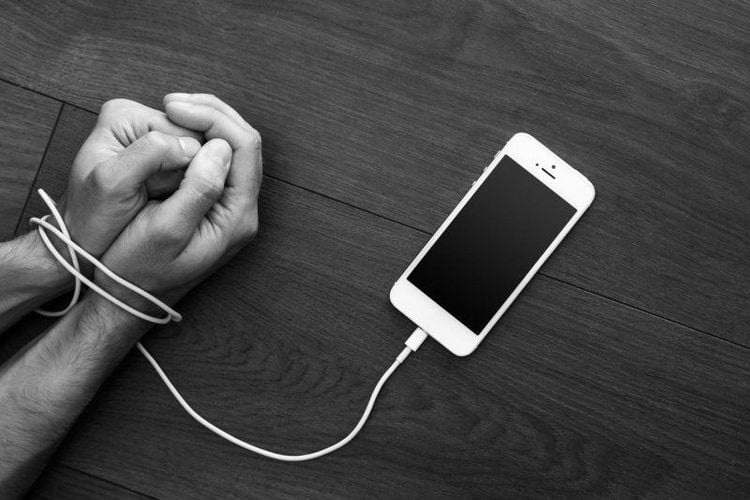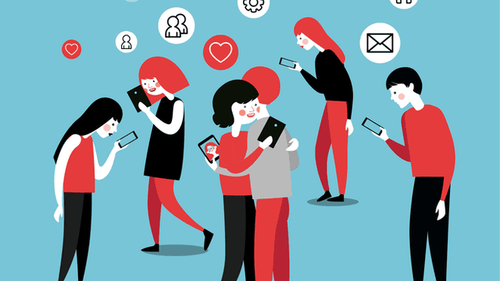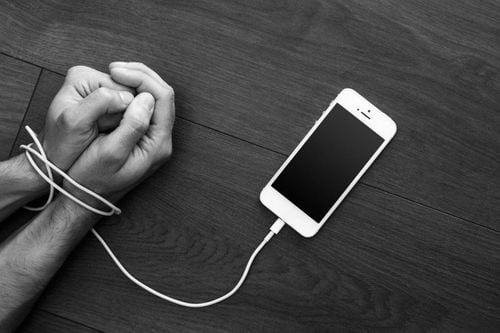This is an automatically translated article.
Today, many people are willing to spend most of their time on social media. The cause of young people's addiction to social networks stems from the need to belong, to be connected to virtual interactions and to express themselves.1. The reality of young people's addiction to social networks
Social network is considered as a valuable tool to help people entertain and communicate with each other even from all over the world. However, besides the positive benefits, addiction to using social networks will lead to some negative impacts that seriously affect users' lives, namely the decline in mental health in the majority of young people.
In a recent study, 85% of social media users visit these sites at least once a day and 70% of people admit that they have to log into the first social network as soon as they turn on the device. computer or mobile device. For many people, the need to use social media is even higher than the desire to sleep and rest. In fact, social media is easier to become addicted to than alcohol and drugs because they are more popular, widely accepted by the community, and are almost completely free.
According to sociologists, social networks always have attractive features and services to retain members. Therefore, although users have the freedom to stop participating in social networks at any time, it is very difficult to do so. Social networks also become "virtual labs" to record users' entire reactions to new stimuli, like a type of market and customer research that partner businesses are targeting.
Trắc nghiệm: Bận rộn có ảnh hưởng đến sức khỏe của bạn không?
Cuộc sống hiện đại khiến chúng ta vì quá bận rộn mà quên chăm sóc sức khỏe cho chính mình. Ai cũng biết rằng lịch trình làm việc cả ngày có thể khiến bạn kiệt sức, nhưng cụ thể bận rộn ảnh hưởng thế nào tới sức khỏe? Hãy cùng làm thử bài trắc nghiệm dưới đây.
2. Causes of addiction to social networks
2.1. The need for self-expression Through magnetic resonance imaging (MRI), scientists discovered that when people talk about themselves, the brain also feels satisfied and creates enjoyable, similar experiences. similar to when having sex or eating. According to another study, babies around 9 months old often act to try to get attention from family members. So when growing up, people still want to provide information about themselves and express themselves to others. If people normally spend almost 40% of their time talking about themselves, this number reaches 80% thanks to the featured features in social networks.
Like other stimulant addiction mechanisms, activating the brain's reward system through self-expression can increase dopamine levels, induce periods of excessive use, and be a cause of gender dysphoria. Children addicted to social networks.

2.2. The need to connect and belong Social Network gives users the feeling of interacting with anyone, from friends, colleagues, family to celebrities and idols. But in reality, users are just interacting with the platform built by a variety of content created by many people. A social network is a place to receive information, save data, then collect it and display it on a specific interface. In other words, this is an interactive space of an open content creation project, where users voluntarily create, attract other members to continue participating and bring profits to the host companies. .
The need to connect and belong is also reflected in the invitation and acceptance of friends, shares or "likes", comments... Obviously, social networks encourage users to post regular content. pervasive and pervasive. Otherwise, countless other new posts will be updated and appear on the message board interface very quickly, and that causes our posts to quickly fall into oblivion.
In addition, to connect users, social networks also offer "tag" - a name tag to send notifications to other friends, and "hashtag". This entices and attracts "addicts" to discuss together on a topic of interest to all, turning the social network space into a "common home" for users with similar views belonging to the same group. about.
2.3. Social networks create psychology like gambling Social networks are likened to a "casino", in which each user is a "gambler" who is responsible for placing bets on his own creative content every day. Everyone has the desire to attract more likes, positive comments and agreeable shares. Therefore, they need to calculate what to write to please the online community, but cannot predict the same outcome as before each game. Although the investment is very well done for each post, sometimes users receive indifference instead of praise and support as imagined, in some cases even anger from the majority of "residents". network” other.

In addition, casinos often find ways to make players forget the sense of time and plunge into insatiable black and red fun. They reduce sunlight into the room, have no windows, no clocks, and constantly serve food and drinks. Similarly, social networks also use a way of making members constantly glued to their phones because of the fear of being out of date. Newly updated information streams instead of being dated and timed, social networks tend to display the measured time since the article was posted, for example "5 minutes ago", "10 hours ago". .. Besides, users look to social networks to get a sense of escape from reality, away from lonely meals, problems in relationships and work, ... Meanwhile, The virtual world on the Internet has no existence of reality and promises to bring a lot of fun and excitement to users.
Even if social media is the leading tool to help people entertain and maintain relationships, young people's social network addiction has become a serious problem that needs to be studied and treated. The causes of social media addiction may be related to the brain's reward and gratification mechanisms for attention or self-expression. In addition, the excessive use of social networks is also due to attractive features that take up all of the user's time, similar to the mechanism of gambling addiction.
Please dial HOTLINE for more information or register for an appointment HERE. Download MyVinmec app to make appointments faster and to manage your bookings easily.
References: Ncbi.nlm.nih.gov; Medscape.com and Psychologytoday.com












